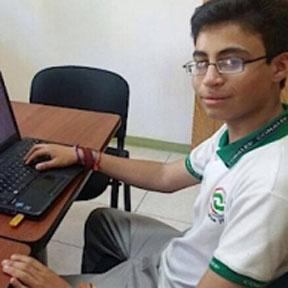
Generación Selfie
Selfie Generation
Un cambio drástico se ha producido entre la generación de las postguerras mundiales y las actuales generaciones digitales. Tan drástico, que más que hablar de brecha generacional (frase con la que nos referíamos a la distancia cultural que se produce entre una generación y otra), tendríamos que hablar ahora de “abismo generacional”. Los adultos y los jóvenes de hoy no sólo se ven diferentes, sino que lo son. Y no sólo parecen pensar diferente, sino que lo hacen desde categorías y fundamentos muy distintos a los nuestros.
El mundo de los jóvenes de hoy parece haber dejado de ser comunitario para centrarse, principalmente, en ellos mismos, y su filosofía se asienta más sobre derechos que sobre deberes. Se crían hablando como adultos, pero viven actuando como adolescentes. Sueñan con grandes ideales personales, pero desprecian el hecho de tener que hacer grandes sacrificios para lograrlos. Son la generación del aquí y del ahora, del logro rápido y del placer intenso, del aburrimiento permanente y del vacío espiritual.
Pero mucha de la culpa por esto es nuestra. Los padres de hoy, que en su gran mayoría tendemos a tener dos o un solo hijo, les hemos dado en exceso todo lo que nosotros no tuvimos y los hemos sobreprotegido tratando de encerrarlos en una burbuja. Evitamos en ellos toda frustración posible y hasta hemos defendido sus grandes caprichos. Nos alivia que se queden en casa a practicar su autismo tecnológico, antes que verlos salir a enfrentarse a la vida real. Lo nuestro ha sido un exceso de amor y una ausencia de sabiduría.
Y ellos, empoderados por la omnipresente propaganda de sus derechos, nos han reclamado un trato “igualitario” (salvo cuando se trata de pagar las cuentas) y un apoyo incondicional para su nueva forma de ver la vida y de vivirla.
Al final, el resultado no ha sido bueno. Han resultado ser la generación más ególatra de la historia y, por eso mismo, la más frustrada, temerosa y solitaria. Dejan que sus vidas se moldeen en base a lo que ven en las redes sociales y sufren por no poder ser tan cool como el influencer del momento. Han sobre enfatizado lo externo y han minimizado lo interno.
Ya es tiempo de recapacitar, de asumir la culpa compartida y de cambiar, antes de que los likes, la ilusoria libertad absoluta y la vanidad terminen de arruinar a nuestra amada generación selfie.
Selfie Generation
A drastic change has occurred between the post-world war generation and the current digital generations. So drastic that rather than talking about a generation gap (a phrase that refers to the cultural distance that occurs between one generation and another), we would now have to speak of a “generation gap.” Today’s adults and youth not only look different; they are different. And not only do they seem to think differently, but they do so from very different categories and foundations than ours.
The world of young people today seems to have stopped being a community to focus mainly on themselves, and its philosophy is based more on rights than on duties. They grow up talking like adults but live by acting like teenagers. They dream of great personal ideals, but they despise having to make great sacrifices to achieve them. They are the generation of the here and now, of rapid achievement and intense pleasure, permanent boredom, and spiritual emptiness.
But much of the blame for this is ours. Today’s parents, the vast majority of whom tend to have two or one child, have given them excessively everything that we did not have and have overprotected them by trying to enclose them in a bubble. We avoid any possible frustration in them and have even defended their great whims. We are relieved that they are staying home to practice their technological autism, rather than seeing them go out to face real life. Ours has been an excess of love and an absence of wisdom.
And they, empowered by the omnipresent propaganda for their rights, have demanded “equal” treatment from us (except when it comes to paying the bills) and unconditional support for their new way of seeing life and living it.
In the end, the result has not been good. They have turned out to be the most egotistical generation in history and, for that very reason, the most frustrated, fearful, and lonely. They let their lives be shaped by what they see on social media and they suffer from not being as cool as the influencer of the moment. They have overemphasized the external and minimized the internal.
It is time to reconsider, to assume the shared guilt and to change, before the ‘likes’, the illusory absolute freedom and the vanity finish ruining our beloved selfie generation.

























